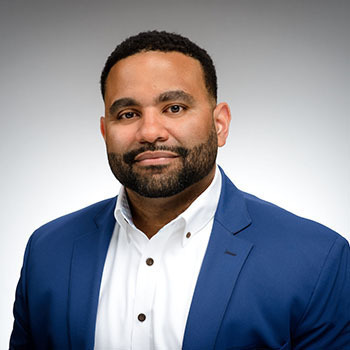Researchers develop new method to help investors predict firms’ decision-making, optimize portfolios and generate greater returns
Top management teams at most businesses are charged with maximizing shareholder wealth, making any actions that impede this goal their sole responsibility.
However, these management teams are often pressured to skirt normal business practices in order to meet earnings thresholds. One way is through myopic marketing spending — reducing marketing as well as research and development expenses to boost earnings, which increases short-term results at the expense of long-term performance.
New research from the University of Notre Dame introduces a novel method to help investors predict myopic marketing spending up to a year in advance, giving investors ample time to optimize their portfolios and generate much better returns.
A survey of 500 global executives, conducted jointly by the nonprofit Focusing Capital on the Long Term and McKinsey, found that top management teams continually feel pressured to meet near-term earnings targets at the expense of long-term strategies. They make myopic decisions to make the firm look better. This behavior often happens prior to capital increases, initial public offerings, share repurchases and C-suite retirements.
According to McKinsey, top management teams are willing to “cut long-term growth investments by 17 percent, on average, when faced with a 15 percent decrease in revenue.” This short-term decision making has a downside. It harms stakeholders, including investors, customers and the boards of directors. It is also associated with inferior stock-market performance in the long run, due to loss of market share and delayed innovation.
Unfortunately, investors only notice narrow-minded marketing spending after the fact, through public financial statements.

A new prediction strategy in “Can Words Speak Louder than Actions? Using Top Management Teams’ Language to Predict Myopic Marketing Spending,” forthcoming in the Journal of Marketing from lead author Andre Martin, assistant professor of marketing at Notre Dame’s Mendoza College of Business, along with Tarun Kushwaha from the University of Wisconsin, offers several advantages compared with existing methods.
Martin analyzed the language management teams use in earnings calls, specifically focusing on marketing and earnings emphasis, to predict future instances of myopic marketing spending. The study looked at 11 million sentences from nearly 25,000 quarterly earnings call transcripts of 1,197 firms between 2008 and 2019 and revealed that this approach can predict myopic marketing spending at a quarterly frequency.
“By focusing on the marketing and earnings emphasis language they use, we can forecast instances of myopic marketing spending up to a year in advance,” said Martin, a former software engineer and program manager for Xerox and defense contractor SRC Inc. who specializes in the downstream effects of firm communication. “This provides longer foresight and more frequent prediction opportunities (quarterly) than current existing prediction methods.
“We find that one standard deviation increase in earnings emphasis is associated with a 23.68 percent increase in the likelihood of future myopic marketing spending.”
The findings also showcase fiscal impact.
The researchers compared the financial returns of firms that engage in myopic marketing spending with those that do not and found that using this method to avoid investing in myopic firms yields an additional 6.44 percent in returns over four years. This translates to 1.61 percent annual abnormal returns over existing prediction methods.
“More than just financial gains, this study’s findings have profound governance implications,” Martin said. “They equip boards with an early detection tool for executive actions that could harm long-term firm value, enabling timely intervention.”
They also empower individual investors with insights into executive intentions.
This prediction tool provides stakeholders, regulators and firm competitors with valuable insights into potential top management actions. These actions could affect not only long-term firm value but also market conditions. Reducing the information barrier around executive intentions enables greater monitoring through early detection of myopic actions.
Contact: Andre Martin, 574-631-0711, amarti94@nd.edu
Latest ND NewsWire
- Notre Dame Lead Innovation Team partners with local WIC program to identify, prevent lead poisoning in childrenB.A.B.E. store “shoppers” now have something new to help their families: free lead screening kits offered by the University of Notre Dame’s Lead Innovation Team.
- Vatican honors Martin and Carmel Naughton with papal awardThe late Pope Francis, in one of his last acts, conferred the honour of the Order of Saint Gregory the Great upon Carmel and Martin Naughton, Trustee Emeritus of the University of Notre Dame. The papal honor is in recognition of the Naughtons’ outstanding philanthropy in the areas of education and the arts, particularly in the provision of philanthropic support and scholarships to Catholic education at the University of Notre Dame and Kylemore Abbey, and in their transformative contributions to higher education in Ireland.
- Brain tumor growth patterns may help inform patient care managementAssistant Professor Meenal Datta (University of Notre Dame/Wes Evard) A team of researchers from the University of Notre Dame, Harvard Medical School/Massachusetts General Hospital, and Boston University has developed a technique for measuring a brain tumor’s mechanical force and a new model to estimate how much brain tissue a patient has lost.
- Notre Dame elects two new TrusteesTwo new Trustees — John F. Crowley and Danielle Walker Merfeld — have been elected to serve on the University of Notre Dame’s Board of Trustees effective July 1. …
- From reaction to resolution: The future of allergy treatmentTwelve-year-old Lauren Eglite was thrilled to attend a Notre Dame football game with her father, Erik, in 2017, even though her acute peanut allergy demands constant vigilance. She was even more excited when the stadium’s brand-new video board aired an NBC Fighting…
- Notre Dame student uses ‘American Ninja Warrior’ spotlight to fight world hunger via his nonprofitOn July 14 (Monday), a University of Notre Dame business student will compete in the semifinal round of NBC’s “American Ninja Warrior” to advocate for an end to world hunger, an ambition he works toward by making knotted dog toys and collecting donations to his nonprofit.












